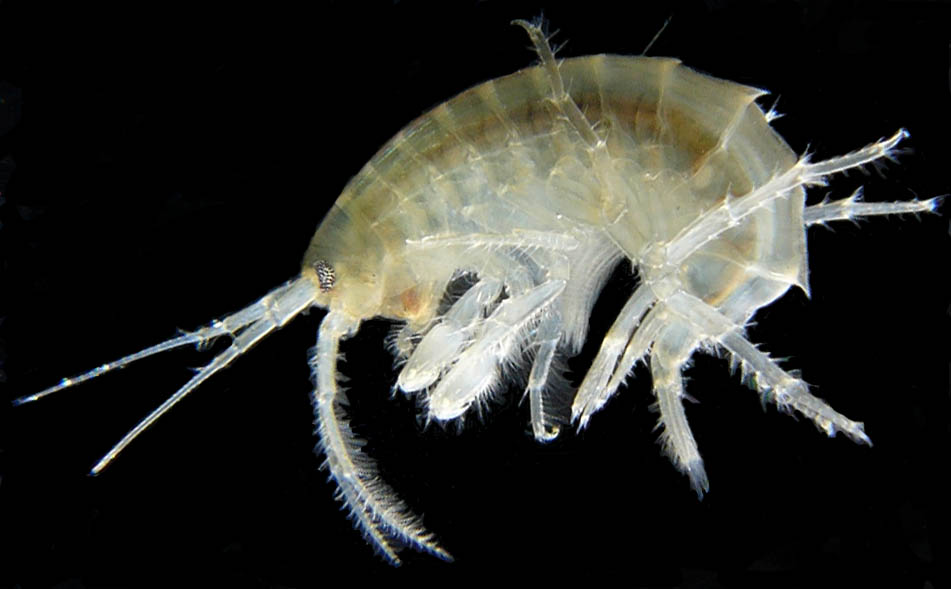5 July 2018
Zombie shrimp?
Posted by Shane Hanlon
This is part of a series of posts from our own Shane Hanlon’s disease ecology class that he’s currently teaching at the University of Pittsburgh Pymatuning Laboratory of Ecology. Students were asked to write popular science posts about (mostly) wildlife diseases. Check out all the posts here.

By Ryan Katz
Parasites are known to manipulate their hosts’ behavior in a variety of ways to aid parasite survival and reproduction. A fascinating example of this type of host-parasite interaction was observed by researchers from the University of Leeds. These scientists studied a species of shrimp that lives in rivers in Ireland (Gammarus duebeni celticus) and a microsporidian parasite that infects them (Pleistophora mulleri). When placed in tanks with juvenile shrimp, the shrimp infected by parasites were far more likely than uninfected shrimp to cannibalize juveniles. A possible reason for this behavior presented by the researchers is that the increased stress caused by the parasites forces infected shrimp to engage in cannibalism to survive. The parasites are also known to weaken the shrimp’s ability to feed, which might force them to cannibalize other shrimp because they are unable to catch their usual prey.
Interestingly, uninfected shrimp also change their behavior in the presence of parasites. While it is less common for healthy shrimp to engage in cannibalism, when they do eat juveniles they prefer to prey on those not infected by parasites. This is likely an evolutionary strategy to avoid infection that may occur when eating individuals carrying parasites. Once shrimp have been infected by the parasites, they no longer show a preference for eating healthy juveniles. This is either because the increased stress caused by the infection prevents them from being picky, or because once an individual is already infected there is no benefit in attempting to avoid parasites.
Through alterations in hosts’ behavior parasites are able to not only affect the organisms they infect, but entire populations and ecosystems. Considering these interactions is necessary for scientists to be able to understand the roles disease and parasites play in natural systems. For example, increased cannibalism of juveniles could increase survival rates in infected adults, but may weaken the shrimp population in the long-term. This could further affect the shrimp’s predators, who would face a shortage of prey, and the shrimp’s prey, who would have fewer predators to avoid. The researchers also noted that cannibalism is a common practice in many diverse species. Researching the conditions under which animals choose to engage in cannibalism is therefore relevant to many animal species, not just the shrimp being studied.
Source: https://www.smithsonianmag.com/smart-news/parasites-linked-cannibalism-180954615/
Research article: http://rsos.royalsocietypublishing.org/content/2/3/140369
Photo source: http://www.natscinews.com/2015/03/22/what-is-it-parasitic-host-or-zombie/










 The Plainspoken Scientist is the science communication blog of AGU’s Sharing Science program. With this blog, we wish to showcase creative and effective science communication via multiple mediums and modes.
The Plainspoken Scientist is the science communication blog of AGU’s Sharing Science program. With this blog, we wish to showcase creative and effective science communication via multiple mediums and modes.